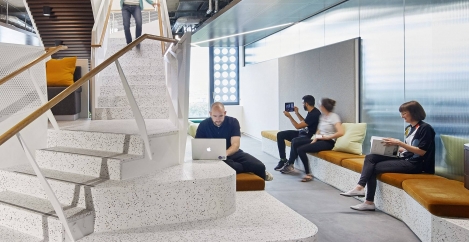September 20, 2019
Exploring the link between digital IQ and workplace culture
 One of the most talked about solutions to the UK’s seemingly intractable productivity deficit is the application of new technology. And as we begin to address the first challenges and opportunities presented by the Fourth Industrial Revolution, it grows more apparent each day that this is not merely a macro-economic issue, but something that affects us at an organisation and personal level too.
One of the most talked about solutions to the UK’s seemingly intractable productivity deficit is the application of new technology. And as we begin to address the first challenges and opportunities presented by the Fourth Industrial Revolution, it grows more apparent each day that this is not merely a macro-economic issue, but something that affects us at an organisation and personal level too.
Consequently, one of the most important attributes that must be developed in order for both organisations and individuals to thrive in this new era is digital IQ, sometimes referred to as DQ. And the most important thing to understand about the current digital IQ of many organisations and individuals is that they need to focus on developing it.
Recent reports from both Gartner and PwC which track changes in digital IQ have agreed that there are disconnects between the objectives and statements firms make about the subject and their ability to keep up with the opportunities available to them, if not push ahead of their competitors.
[perfectpullquote align=”right” bordertop=”false” cite=”” link=”” color=”” class=”” size=””]As our lives become hyperconnected, it’s digital intelligence that will become critical to individual and organisational success and wellbeing[/perfectpullquote]
This is a problem because as our lives become more hyperconnected, it’s digital intelligence that will become critical to individual and organisational success and wider social wellbeing.
One of the reasons for this is that too many firms are trying to develop their digital IQ in ways that see them failing to keep up.
As the most recent PwC digital IQ report concludes: “Enterprises aren’t so much falling behind as struggling to keep up with accelerating standards. And looking ahead, it is clear most are not ready for what comes next—and after that—as technologies continue to combine and advance, and new ways of doing business go from inception to disruption seemingly overnight.”
So it’s increasingly clear that the old ways of harnessing technological change are no longer enough to keep pace and we must find new ways. This is a challenge for every sector and every part of society, but this White Paper will address just that of the workplace sector. We feel it is a perfect example of the digital IQ challenge because the workplace itself is subject to so much disruption as it adapts to a new phase in which it becomes not merely physical but digital and cultural too. I hope you enjoy reading it.

Anthony Brown is Chief Marketing Officer at BW@Workplace Experts















